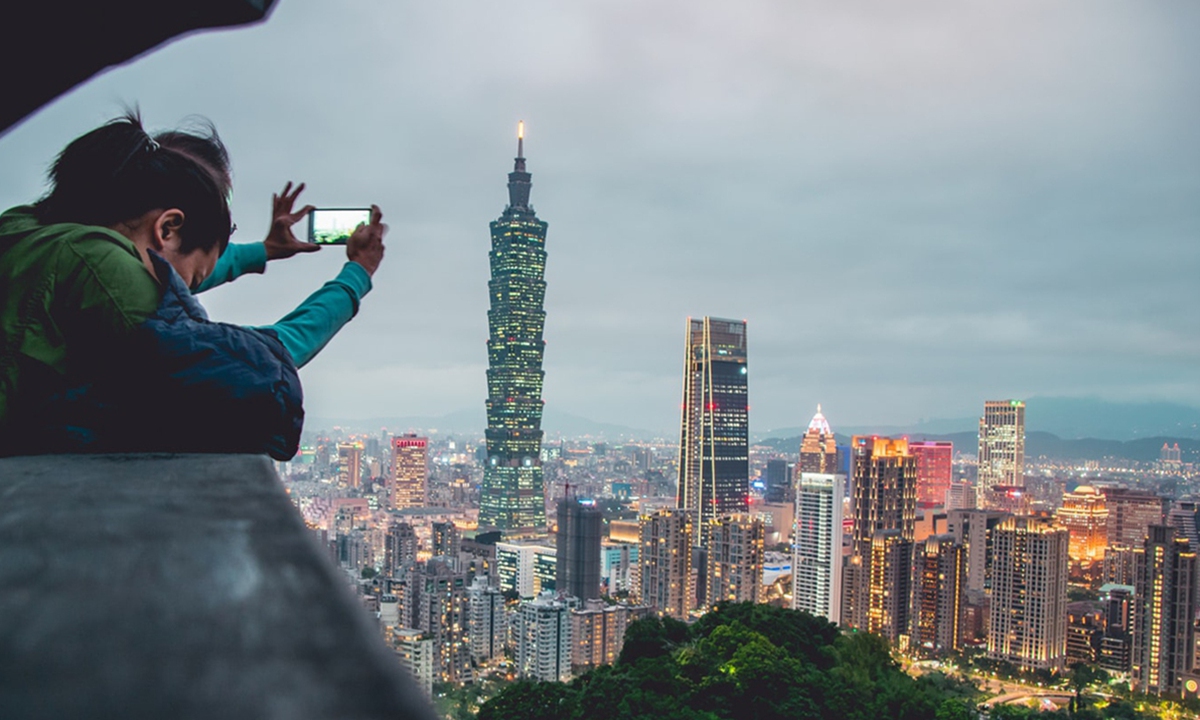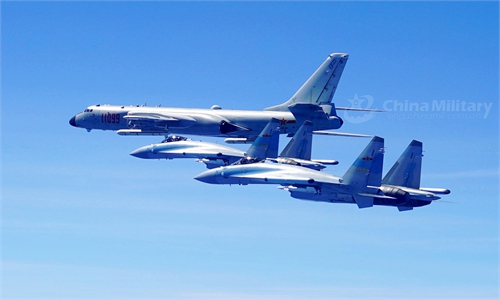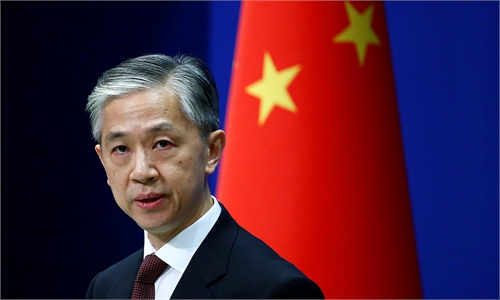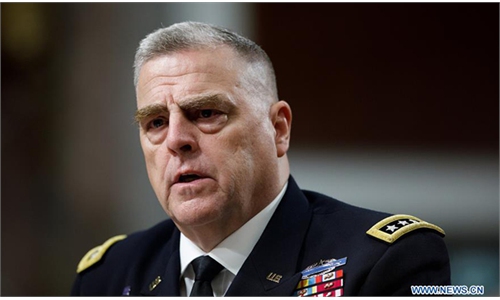Western politicians' 'roadshow' won't shake 'one-China principle'
Reunification unstoppable; 'Taiwan card' used for Western interests

Taiwan Photo: Unsplash
The Chinese Foreign Ministry defended China's sovereignty and territorial integrity vis-à-vis the Taiwan question, against the backdrop of a new anti-China roadshow from some Western politicians. Experts said the West's playing of the "Taiwan card" cannot shake the one-China framework and stop the reunification, and this shows the West only cares about its interests.
The Foreign Ministry urged some politicians from the European Parliament to fully recognize the sensitivity of the Taiwan question and refrain from sending wrong signals to Taiwan secessionists, a few hours after a delegation from the Special Committee on Foreign Interference in all Democratic Processes (INGE) of the EP met with the regional leader of Taiwan island Tsai Ing-wen on Thursday.
The ministry on Thursday also warned the US to abide by the one-China principle so as not to seriously damage the China-US relations and the peace and stability across the Taiwan Straits, after General Mark Milley, chairman of the Joint Chiefs of Staff, said the US "absolutely" has the capability to defend Taiwan, even if the mainland is "unlikely" to use military means for reunification in the near future.
The clumsy performance of a few people cannot shake the international community adhering to the one-China principle, or alter China's inevitable reunification, the Foreign Ministry spokesperson said. He noted they are doomed to fail. "We will never allow anyone or any force to separate Taiwan from the motherland in any way."
During the meeting with Tsai, Raphael Glucksmann, leader of the INGE delegation, expressed support to the island of Taiwan, which he described as a "democratic partner" confronting the Chinese mainland which represents "authoritarianism," Taiwan media reported.
Taiwan media reported that on Wednesday, the newly appointed head of the American Institute in Taiwan, Sandra Oudkirk, met with the top official of Taiwan's investigatory and auditory authority about possible cooperation and exchanges on so-called democracy, freedom, and cooperation.
While playing the "Taiwan card," the US continues to push the "China threat theory" to fuel rising cross-Straits tensions. According to a Pentagon report released on Wednesday, China is allegedly rapidly expanding its nuclear arsenal, and will have 1,000 nuclear warheads by the end of the decade as it aims to surpass US global influence by the middle of the 21st century, CNN reported.
Analysts said that smearing China through the old-fashioned ideological asymmetry cannot prove Western countries are justified and legitimate, as their real purpose is to pave the way for strengthening their presence in the Asia-Pacific.
People like members of the EP delegation, whom the secessionist DPP authority is lobbying, are trying to drive a wedge between the Chinese mainland and Europe, but they do not represent the mainstream, analysts said.
Behind the values and ideological battle of "pro-Taiwan" and "anti-Chinese mainland" are interests and new rules, Wang Yiwei, director of the institute of international affairs at the Renmin University of China, told the Global Times on Thursday.
"Digitalization, green and low-carbon will be the key areas in the future. By portraying China as a country that does not pay attention to privacy and human rights issues, Western countries can set up new rules and norms to restrict China's move to the medium-high end of the industrial chain, and hinder China's innovation transformation," Wang said.
In the case of the chip shortage, Europe and the US want to maintain the security of the industrial and supply chains by diversifying the sources, which means not relying too much on the Chinese mainland. Taiwan, as an important exporter of semiconductors, has become an option for Europe and the US in the Indo-Pacific, Wang Shuo, a professor at the School of International Relations of Beijing Foreign Studies University, told the Global Times on Thursday.
There is a small group of EP members who have a Cold War mentality and fear losing their so-called institutional advantage… Although the EP has no decision-making powers, it can interfere in European decision-making, the expert said.
He noted that although the EP is not an executive body and merely expresses the views of some politicians, it has sent a very unfriendly and even dangerous signal to the Chinese mainland by allowing its delegations to visit the island of Taiwan.
Experts said while the one-China framework in the global community cannot be shaken by a "provoking roadshow" conducted by some Western politicians, they should learn more about the political language of the Chinese mainland and not take the words of the Chinese Foreign Ministry as empty words.
They (some Western politicians) may think the cost of provoking China is low due to the close bond between China and the EU. But they don't realize they're playing with fire, Wang Shou said.




